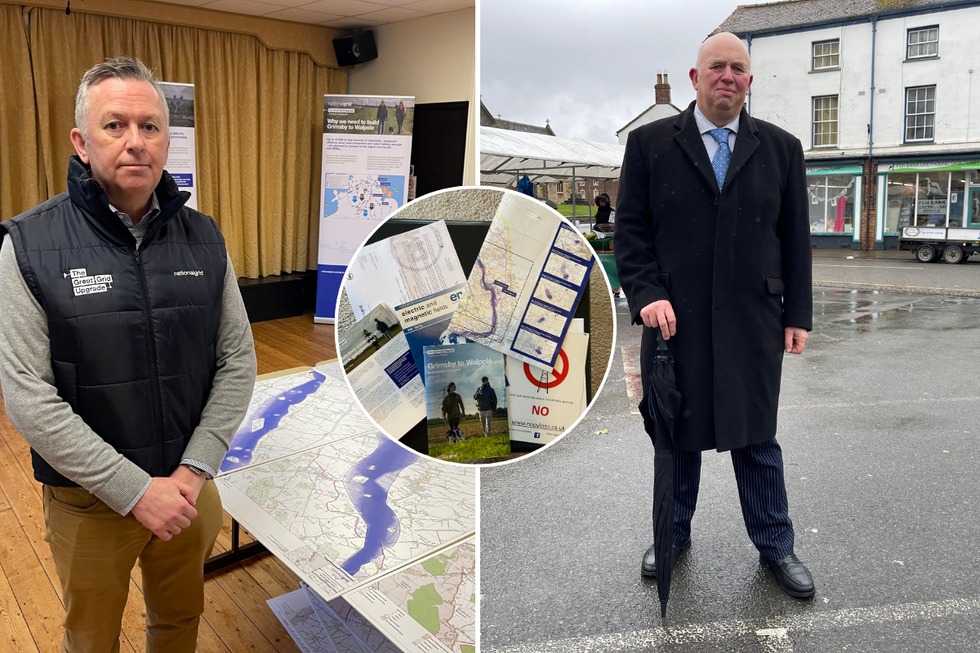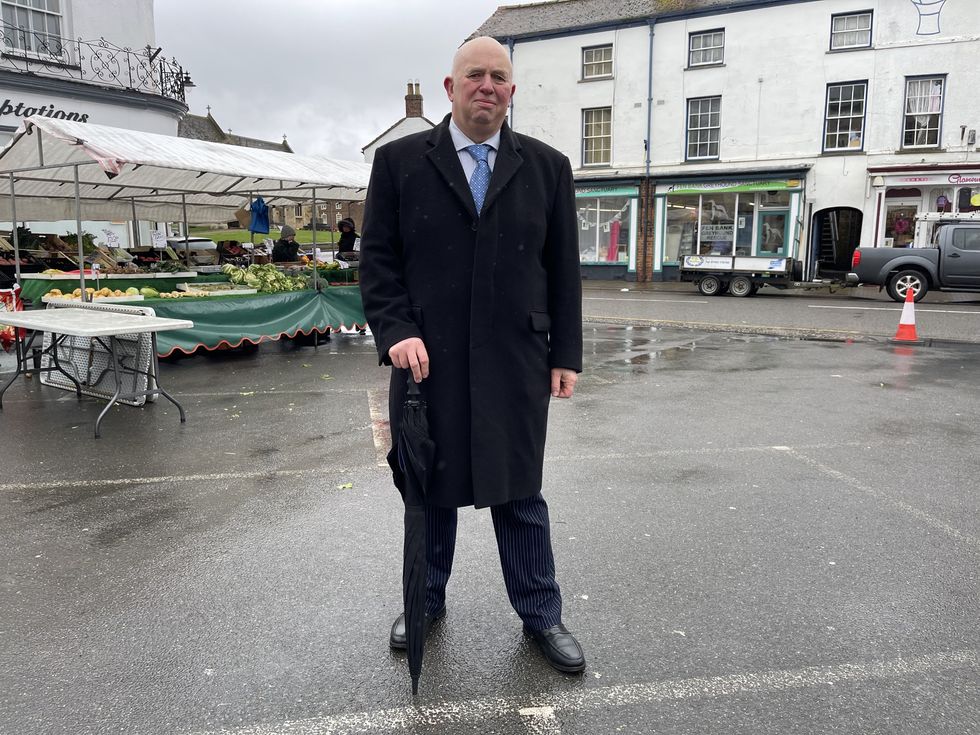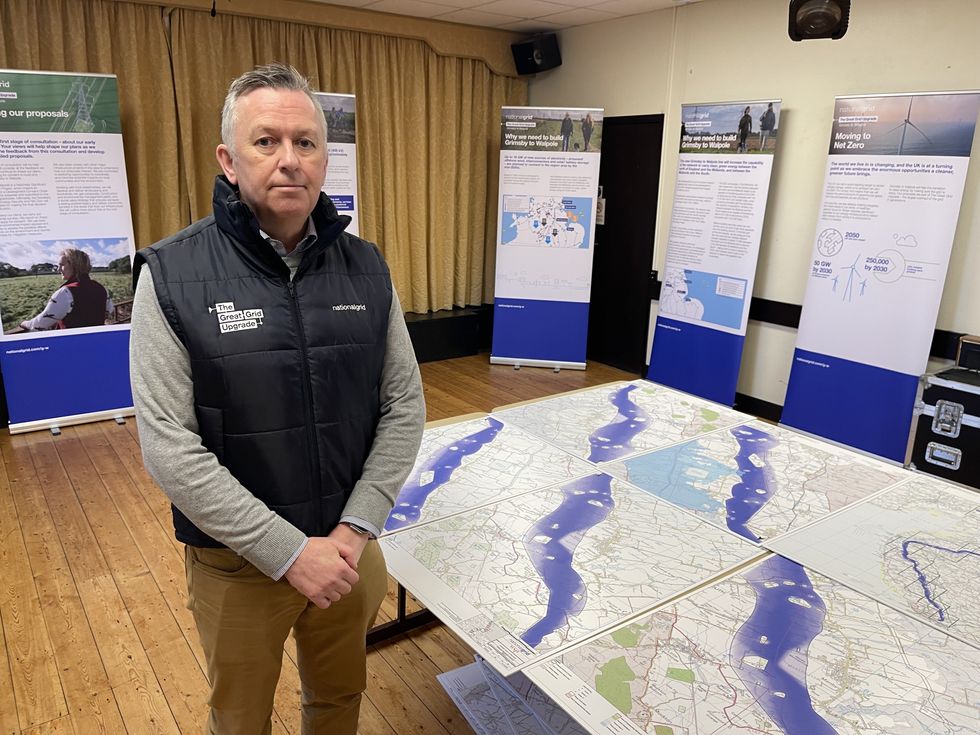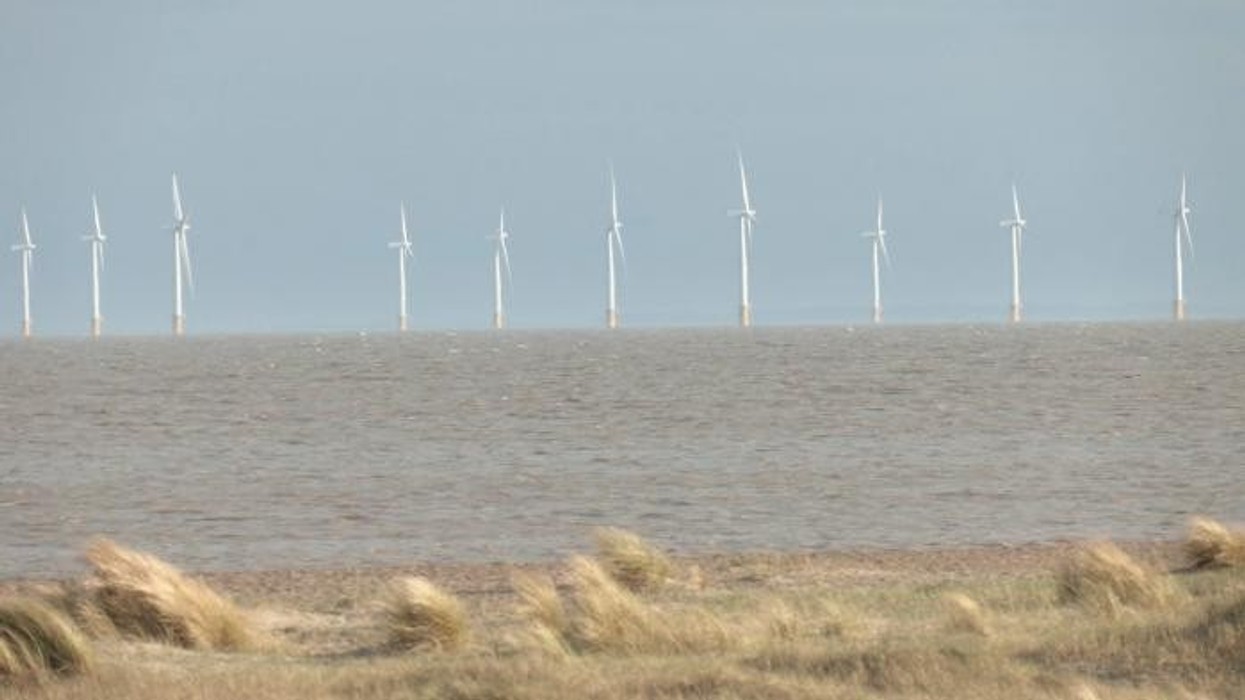National Grid is proposing 17 projects as part of the Great Grid Upgrade which is expected to cost £3bn initially by the year 2026
Don't Miss
Most Read
Trending on GB News
Plans to build hundreds of miles of overhead cables across the country have been criticised as “awful” by members of the public as they consider how proposals will affect house prices, mental health, and the environment.
National Grid is proposing 17 projects as part of the Great Grid Upgrade which is expected to cost £3bn initially by the year 2026, but billions more during the next decade of completion.
In Lincolnshire, 6,000 people have signed the ‘No Pylons Lincolnshire’ petition objecting to proposals of 87 miles of overhead cabling and additional infrastructure between Grimsby and Walpole.
National Grid has been running early-stage consultations in communities where they plan to place pylons.

In Lincolnshire, 6,000 people have signed the ‘No Pylons Lincolnshire’ petition
GB News
“My husband has Parkinson’s and dementia and we need to put the house up for sale”, said Helen Nelthorpe, 76, from Alvingham whose bungalow overlooks the area marked for pylons.
“I’ve been told by estate agents that the property value will go down by a third. It’s doubtful anyone would want to buy it at all, because who wants to look out at pylons, she added.”
“I think it’s absolutely awful, a blot on the landscape”, said Anita Hunter, from Alvingham, 69. “It can only be detrimental to the area. It’s a lovely part of the world and it is going to be spoilt by unsightly pylons.”
National Grid says it needs to prepare the network for the incoming pressure from wind and solar farms which are primarily being built along the eastern counties of England and Scotland.
The current infrastructure was built in the 1960’s to help transfer energy from coal fired plants, mainly in the midlands, to other parts of the country.
Some of the proposals feature underground cabling or offshore connections which National Grid says cost significantly more than pylons.
LATEST DEVELOPMENTS:

Cllr Colin Davie fears the areas greatest industries, tourism and farming, will be badly affected by the proposals
GB News
The corridor suggested by the National Grid is between the Lincolnshire Wolds, an ‘Area of Outstanding Natural Beauty’ and the coastline.
“There’s this little space in between which is very rural, and they plan to build a forest of pylons”, said Christine Herbert, who lives near Alvingham.
She added: “I think the community will feel devastated because it is a quiet, rural area and these pylons are enormous. It will change everything, the whole outlook of the area.”
“It’s a worry for everybody. It’s gonna ruin farmland and people’s views", said Helen, 69, who didn’t want to give her surname, from near Alvingham.
She owns a small amount of land and told GB News she is concerned how the pylons might affect its value.
“These pylons take up such a big space there’s gonna be quite a lot of land that is unusable," she said.

Steve Knight-Gregson, External Affairs Manager at National Grid, said options other than pylons, such as underground cabling and offshore, will be too expensive for Lincolnshire’s route
GB News
Rev. Robert Mansfield, the local vicar in nearby Stewton, said: “I’m feeling very sad that intelligent people can’t come up with better alternatives than this. This is just a money-making scheme. We’ve got to put up for this forevermore.”
He said: “There aren’t that many people living here,” which is why he thinks the area has been chosen.
Cllr Colin Davie is responsible for Economy, Environment and Strategic Planning at Lincolnshire County Council and fears the areas greatest industries, tourism and farming, will be badly affected by the proposals.
"National Grid will destroy forever the beauty of the Lincolnshire countryside and use our best growing land by turning it into an energy production hub. It would come at the expense of national food security, unnecessarily destroying the Lincolnshire countryside."
National Grid said options other than pylons, such as underground cabling and offshore, will be too expensive for Lincolnshire’s route.
Steve Knight-Gregson, External Affairs Manager at National Grid, said: “Because the cost of infrastructure like this goes onto all of our bills, Government expect us to keep costs as low as possible for all of us, but also to have regard to the environment as well.”








